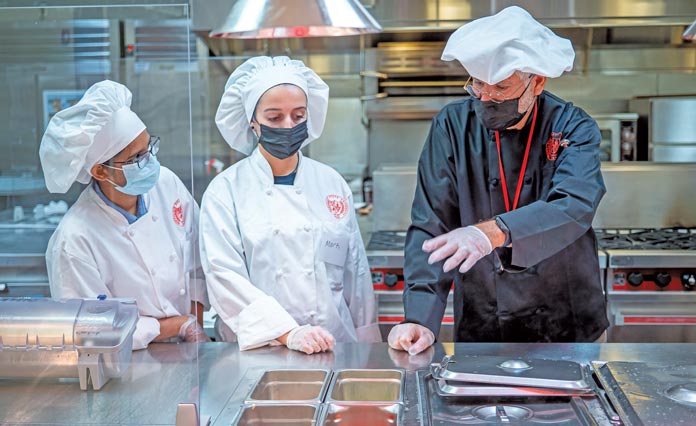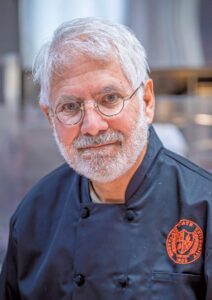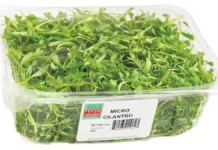
Q&A With Professor Charles Feldman, Montclair State University
Have you thought about how you will help to make a better, healthier world? That’s the question Professor Charles Feldman, PhD, asks students in the Department of Nutrition and Food Studies at Montclair State University. A Fulbright Scholar, he’s been teaching and inspiring the next generation of students through course offerings that traverse the entire foodscape: Nutrition and Dietetics, Food Science, and Food Systems.
Professor Feldman joined me for a conversation looking back, during the pandemic and forward to the future of Food Studies education and the interaction of Industry and Academia.

What’s your background prior to teaching?
I started in the restaurant business at 17, as a busboy. I worked as a waiter through college then managed and operated restaurants. I have been in academia for 26 years.
What clicked where you knew you needed to give back through teaching?
A couple of things clicked that indicated I could do more by teaching. I thought I needed to have an “outside” perspective, so I could focus more on contextual issues affecting the industry. These included: considering consumer motivations, the farm-to-table network, food sustainability, ethics, labor and food inequities, etc. In 1996 I was one of the first students in the new (at that time) Food Studies program at NYU. I was also the first PhD graduate of this program.
What were you doing before coming to the Montclair State University program?
I was a PhD student and I taught as an adjunct in colleges and community colleges and as director of hospitality management of one program before coming to Montclair State University.
What was the curriculum like in the past and now?
I was hired to oversee the Foodservice Management program at Montclair State in 2002. At that time, it had six enrolled students and was housed in the Human Ecology major. Since then I, and then with others, upgraded the curriculum to encompass management and Agra issues. The program is now titled, Food Systems and it is part of the Nutrition and Food Studies major. Depending on the year, the program has approximately 40 to 60 students. The Nutrition and Food Studies major has approximately 400-students who are housed in the Food Systems, Food Science, Dietetics and Nutrition and Wellness concentrations at both undergrad and grad levels.
How have the needs of the local restaurant and foodservices evolved and intersected with your curriculums?
Over the years I have worked with a number of local, national and international restaurants and chefs. I have done collaborative events with many of them. To name a few locally: Chef Arno Shmidt, Chef Eilieen Yin Fe Lo, my students have done research with Airane Durate, and Craig Shelton is an advisor to the program. I have also taken students to the Paul Bocuse Institute in Lyon, France. In the past we have brought chefs from all over the world to work hand-to-hand with our students.
I hosted the International Conference on Culinary Arts and Sciences at MSU in 2015 and the International Chocolate Awards in 2016. Now, I am prospectively looking into developing a Think Tank for local restaurateurs, so they may develop new strategies for the future.
How have you molded your program to respond to those changing needs?
I teach Quantity Food Management with input from chefs and before COVID, our students gained experience with Chartwells, our food contractor. There are food experts on our Advisory Board that help point our programs in the right direction. I also have invited experts to discuss food trends with our students. For example, recently, the Marketing Director of Symrise (an international flavoring company) gave a presentation to my class on food trends for the next five years. This talk was based on data garnered mostly from chef and restaurant sources. All of our faculty publish in scholarly journals and present at local and international conferences, where the latest innovations are shared and discussed.
Tell us about the programs and your students.
Students learn where our food comes from, how it is produced and distributed, how our bodies process and digest food, clinical and community nutrition applications, food safety, innovative food product development, sustainability, health and so much more. The programs educate and prepare students as citizens and practitioners with a deep appreciation of cultural diversity (so important for understanding food, nutrition and cuisine), social justice and food equity issues, both locally and global. The undergraduate and graduate academic programs emphasize applied experience in addition to a solid foundation of classroom and lab study. We offer students opportunities for hands-on fieldwork and experiential activities.
The students hail from New Jersey along with some international students from the Fulbright Scholar program. They are a multi-ethnic student body that brings their cultural ideas to the table. Our students juggle many responsibilities that include working full-time, taking care of family obligations. Most commute. Classes are now mostly in-person on campus.
Tell us about some of your successful alums?
Our alums have jobs in the foodservice, nutritional, dietetic, manufacturing, food science, food service and wellness fields. Many are food scientists, dietitians, managers, and food advocates.
We always talk about trends in our business. What are the trends you are seeing and highlighting with your students? Are you seeing a move towards healthier or plant-based?
I just developed a Sustainable Food Practice Certificate for our graduate program. I am working on an undergraduate version of this certificate. Foundational research has indicated that there is a growing need in the food industry for students who are savvy in sustainable practices. I see a consistent move to plant-based diets. To address this, I have developed a new course titled, Food Ethics, Sustainability and Alternatives (available for undergrads and grads).
As you look at your students today, how important is the classroom piece?
There has been a lot of recent talk about the value of a college education. I believe that we are at the precipice of how we did things in the past, while a new era in the foodservice industry will encompass what we will produce, market, serve or deliver, eat, socially interact and how we will utilize technology. The collaborative interaction of industry and academia is critical to evolving the existing models.
How do educational institutions help facilitate the creative changes needed in the industry?
Our students are interested in careers. The externship (we call it internship and graduate practicum) is the most important course they can take today. It transitions students into the industry though experiential learning. Our students bring lessons learned in class to help industry preceptors develop novel strategies. In turn, the students bring novel industry insights back to the class. As a result, new ideas emerge and solutions interactively occur.
And what role does the externship play?
I am also the Practicum Director this semester, for the department’s graduate program. From my perspective, whether it be an internship, externship or practicum, engagement with industry is critical to our students’ educational development. It is also one of the objectives of the University and our department. I look at externships as a two-way exchange. The student learns on-site: this can’t be duplicated on campus, while the sponsoring organization has a link to new ideas. This relationship is mutually beneficial.
What do you suggest that the industry does to help facilitate the career path for entry level-personnel?
Much has been said about the pay and benefit scale for employees in the industry. I believe one of most constructive approaches an employer can provide is educational opportunities for employee enlightenment. For example, they could provide a food systems program where employees can learn science, dietetics and agriculture. Industry leaders should offer more than just a back of house or front of house job. They should encourage employees to learn of the new emerging technologies that are now available in the total foodservice arena. Yes, this may broaden their employment portfolio. But the cross-pollinated benefits generated of having an informed, professionally trained staff cannot be underestimated.
Let’s talk about productivity in the industry.
There are clear correlations of lower productivity as work hours increase to untenable limits. Today’s worker is looking for a quality of life and therefore industry needs to change the current model that restricts employees from life balance and the ability to improve themselves. The industry needs to sacrifice: reduce the work hours, reduce the menu and retool operations. The long-term benefits of this strategy will be numerous
How has the food industry changed during your tenure at MSU?
There are more ethnic operations now, a lot less formality, a lot more contracted operations, a lot of hybridization of cuisines and many more different types of food and ingredients are locally and globally available than 20 years ago. Today students know what quinoa is, what chilies are and are very familiar with acai, falafel and ramen bowls. Foods not just from Europe, but from the pacific rim, Latin America, the Middle East, central Asia, southeast Asia and Africa. Kitchens still look the same if we control for sous vide, digital menus and management systems. Technology is not moving as quickly as we are still tied to the tradition and the kitchen brigade system. We need to get out of the “this is the way we do things” top-down model as past approaches are not the way forward. Foodservice employees are colleagues, not workers.
Do you think the pandemic has highlighted how technology can be used to innovate within the industry?
The pandemic has pointed out deficiencies in the industry and pointed to the future. People are watching movies and work at home; people shop at home; and, people are having entertainment and dining experiences at home. The industry should be aware that’s not going away.
What are some of your favorite Foodtech inventions?
Food management software programs are helpful and invaluable to our students.
How do you see technology and innovation advancing in the next 5 to 10 years?
Robotics will have to replace the 20-30 people working in a room. Other industries have only a few employees making vast amounts of consumer goods. Part of the solution to get the kitchen staff down, increase the quality of life, pay workers more, and have better and flexible hours. New inventions should be employed that make things easier in the kitchen and the front-of-house.























